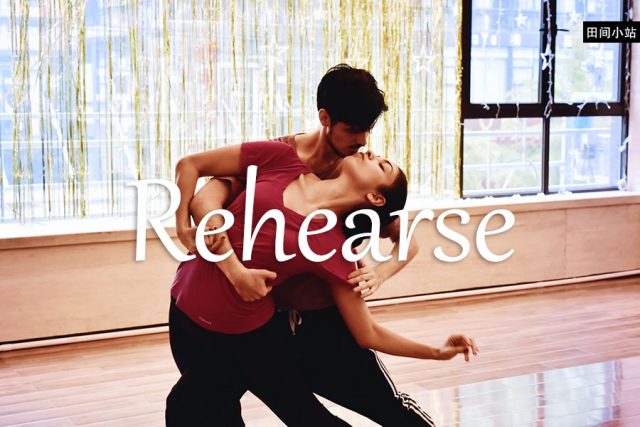本文经授权转载自微信公众号:田间小站

TOEFL TEM8 GRE
外刊例句
- But a big reason for Brazilian firms’ underperformance is less well rehearsed: poor management.
但是巴西公司表现不佳的一个重要原因却鲜有详述:管理不善。
——《经济学人》 - Indian soldiers silhouetted against a traffic signal as they prepare to rehearse for the Republic Day parade in New Delhi.
印度士兵在新德里为共和国日阅兵准备彩排时,交通信号灯映衬出其轮廓。
——《纽约时报》
基本释义
[verb] practice (a play, piece of music, or other work) for later public performance
[动词] 练习(戏剧、音乐或其他作品)以备之后公开演出
深入解读
一眼看到 rehearse 这个单词,很容易将其拆分为前缀 re- (再、重新、重复)+ hearse 。如果你恰好知道 hearse 的意思是“灵车、柩车”,多半会以为这两个单词并没有什么关系,只是恰好形似。
其实并非如此,从词源上来看, hearse 一词源自古法语 herse (用来碎土的大耙子、教堂里安放蜡烛的耙形大吊灯),14世纪进入英语后原用来表示“悬挂在棺材上方用来安放蜡烛的耙形扁平框架”,然后到了17世纪40年代后演变为今义指“灵车、柩车”。
而 rehearse 一词也是源自古法语 herse ,14世纪初经古法语 rehercier (重复、再过一遍,字面意思“反复耙地”)以及英国法语 rehearser 进入英语后开始逐渐用来表示“复述、详述、反复讲”,现在常作为正式用语使用,既可以指对已知内容的总结,也可以用作贬义表示多次反复讲之前已经讲过的一系列观点,比如:
- 他向我详述了过去一年发生的开天辟地的大事变。
He rehearsed to me the epoch-making event of the past year.
Rehearse 也可以用来指在心里复述,即“默述、默诵”或“默默地练习”,常指在心里准备或默诵打算对某人说的话或做的事,比如:
- 她一边沿着墙悄悄地走,一边默诵着她迟到的托词。
She glided along the wall rehearsing her excuse for being late.
等到了16世纪70年代后, rehearse 开始发展出现在的主要含义指“排练、排演、预演”,即为了之后公演而反复练习戏剧、音乐、舞蹈等作品。这个概念还可以进一步用来表示通过反复排演等“训练”演员等以及经反复排练而“使熟练掌握”,比如:
- 在缭绕的薄雾中,乐队指挥在首演夜之前领着全队乐师排练。
The conductor rehearsed the musicians before opening night amid swirling mists.
名著用例
Harry could tell they had rehearsed this conversation while he had been asleep. He didn't say anything.
哈利明白他睡着的时候他们两人已经演练过这样的对话了。他什么也没说。
出自英国作家J·K·罗琳的奇幻小说《哈利·波特》系列的第三本《哈利·波特与阿兹卡班囚徒》(Harry Potter and the Prisoner of Azkaban)。
同近义词
- practice: perform (an activity) or exercise (a skill) repeatedly or regularly in order to improve or maintain one's proficiency
- walk through: rehearse a play or other piece, reading the lines aloud from a script and performing the actions of the characters
- enumerate: mention (a number of things) one by one
